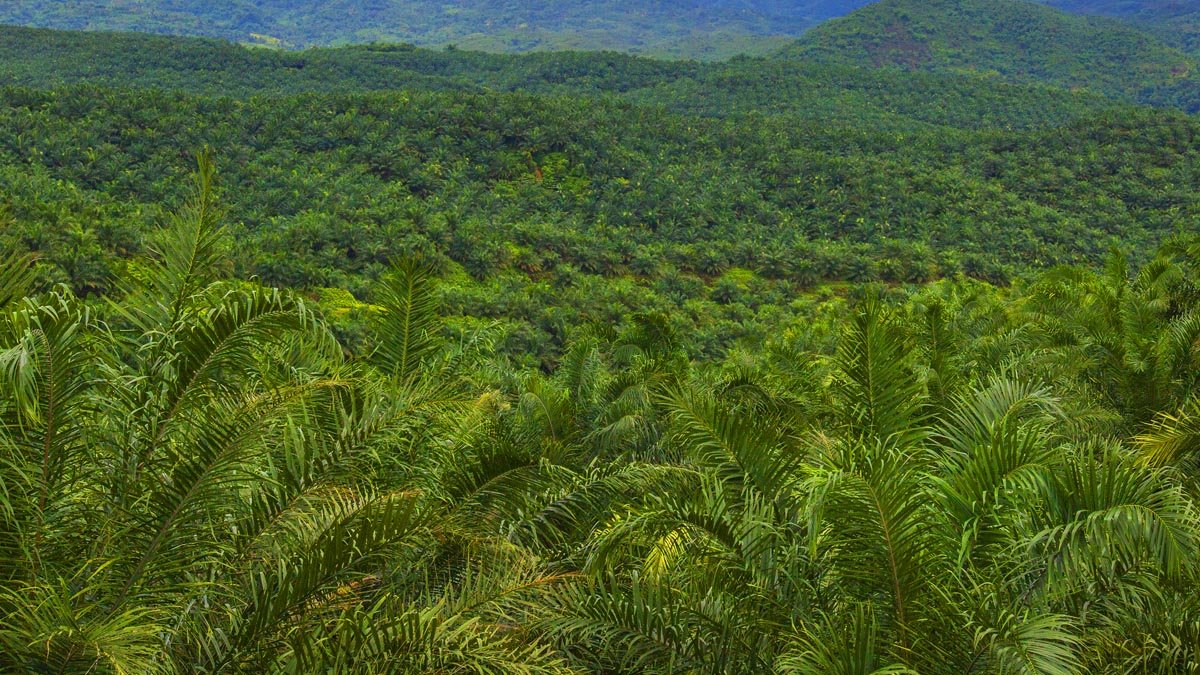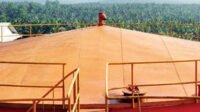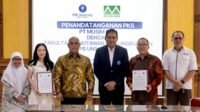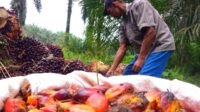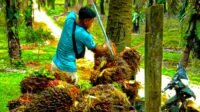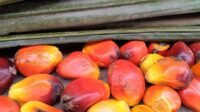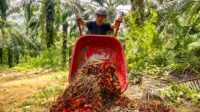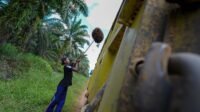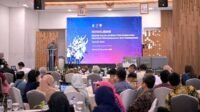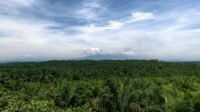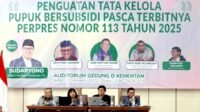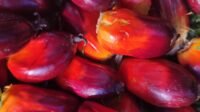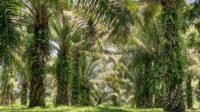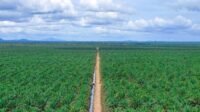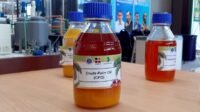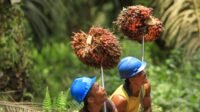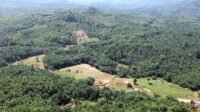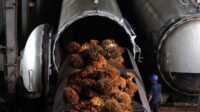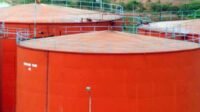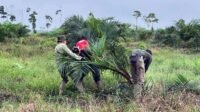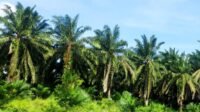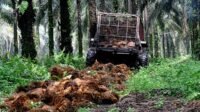PALMOILMAGAZINE, KUALA LUMPUR – Palm oil plantations in Malaysia are facing a growing pest infestation, further challenging the industry’s recovery following recent floods.
Malaysia’s Minister of Plantation and Commodities, Johari Abdul Ghani, revealed in a parliamentary statement on Wednesday (March 6, 2025) that leaf-eating pests, particularly bagworms, have been reported in parts of Peninsular Malaysia, with Johor and Perak being the most affected.
“There are new infestations emerging in several areas of Perak, posing an increasing threat to palm oil plantations in the state,” Johari stated, as quoted by Palmoilmagazine.com from Business Recorder on Friday (March 7, 2025).
Also Read: Colombian Palm Oil Industry Faces Global Temperature Rise and Greenhouse Gas Emissions
Of Malaysia’s total 5.61 million hectares of oil palm plantations, approximately 1.01 million hectares are located in Johor and Perak. A severe pest outbreak in these regions could significantly impact national production.
Prior to this, severe flooding had already caused palm oil output to drop to its lowest level in six months.
To combat the infestation, the Malaysian government has proposed an additional funding of 5 million ringgit ($1.2 million) to strengthen pest control efforts.
The Malaysian Palm Oil Board (MPOB) has implemented measures such as spraying biopesticides and cultivating beneficial plants to naturally reduce pest populations.
With the infestation spreading, Malaysia’s palm oil industry faces yet another challenge amid extreme weather conditions and ongoing global supply chain disruptions. (P2)

